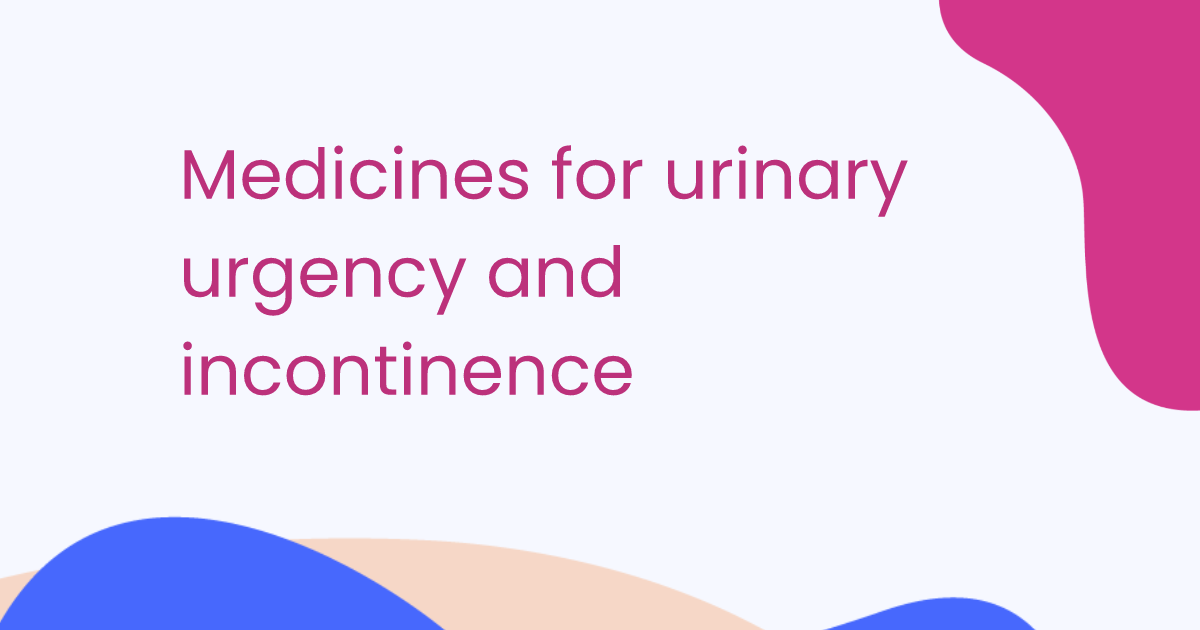Cannabis-based medicinal products
Medicinal marijuana
Peer reviewed by Dr Toni Hazell, MRCGPLast updated by Dr Rosalyn Adleman, MRCGPLast updated 7 Jan 2025
Meets Patient’s editorial guidelines
- DownloadDownload
- Share
- Language
- Discussion
Since a change in the law in 2018, some cannabis-based medicines have been available on prescription in the UK. However, there is only evidence of benefit for treating a small number of conditions.
Many cannabis-based products are also available to buy online, without a prescription, but the quality and content of these products is not known. Some of these products are illegal in the UK.
Products such as CBD oil and hemp oil are available to buy as food supplements from health stores. There is no guarantee these provide any health benefits.

Unsure about mixing medicines?
Check for possible interactions between medicines, supplements and foods before taking them together.
In this article:
Video picks for General medicine information
What are cannabis-based medicines?
Cannabis-based medicines (CBMs) are medicines derived from cannabis that have been used for treating medical conditions. CBMs contain cannabinoids derived from the cannabis plant, including delta-9-tetrahydrocannabinol (THC), cannabidiol (CBD), or a combination of THC and CBD. THC is the constituent of cannabis that causes the 'high', whereas CBD is not intoxicating at typical doses. THC is more likely than CBD to cause side-effects.
Man-made (synthetic) cannabinoids are also available. They mimic the effects of specific cannabinoids such as THC.
What conditions can cannabis-based medicines be used to treat?
Back to contentsCBMs have been studied in a variety of different conditions but there is currently only evidence of benefit in a few conditions. Therefore only a few people are likely to get a prescription for medical cannabis. Currently, CBMs are only prescribed for the following conditions:
Adults with nausea or vomiting caused by chemotherapy.
People with muscle stiffness and spasms caused by multiple sclerosis (MS).
Children and adults with rare, severe forms of epilepsy.
Medical cannabis is only prescribed when other treatments have not worked or are unsuitable.
There is some evidence medical cannabis can help certain types of chronic pain (for example in fibromyalgia), though this evidence is not yet strong enough to recommend it for pain relief.
In the UK, currently, it may only be prescribed for pain as part of a clinical trial.
Nausea and vomiting caused by chemotherapy
Chemotherapy may cause a person to feel sick (nauseous) or vomit. Nabilone is a man-made (synthetic) CBM that can be prescribed by a specialist to help relieve these symptoms, but only when other treatments have not helped or are not suitable.
Muscle stiffness and spasms caused by multiple sclerosis
Nabiximols (Sativex®) is a CBM that is sprayed into the mouth. In the UK, it is licensed for people with MS-related muscle spasticity that has not improved with other treatments.
Severe treatment-resistant epilepsy
Epidyolex® is a highly purified liquid containing cannabidiol (CBD). It will not get you high, because it does not contain tetrahydrocannabinol (THC), the chemical in cannabis that makes you high. Epidyolex® can be prescribed for patients with Lennox-Gastaut syndrome or Dravet syndrome, which are both rare types of epilepsy.
Continue reading below
What are the side-effects of cannabis-based medicines?
Back to contentsThe risks of using CBMs containing THC (the chemical that gets you high) are not currently clear. Ongoing clinical trials are needed before they can be used safely. 'Pure' products that only contain CBD, such as Epidyolex®, do not carry these unknown risks linked with THC. However, most products will contain a certain amount of THC.
The main risks of THC cannabis products are:
An increased risk of a psychotic illness such as schizophrenia.
Dependency on the medicine (addiction). This risk is probably small when its use is controlled and monitored by a specialist doctor. The risk increases with increasing levels of THC.
Cannabis bought illegally off the street, with unknown quality, ingredients and strength, is the most dangerous form to use.
The other possible side effects of CBMs are:
Poor appetite.
Feeling sick.
Weakness.
Change in behaviour or mood.
Feeling very tired.
Feeling 'high'.
Hallucinations.
Like many other medicines, CBMs can also affect how other medicines work. Always discuss possible interactions with a specialist. CBD can also affect how your liver works, so doctors would need to monitor you regularly.
How can you get a prescription for a cannabis-based medicine?
Back to contentsYou cannot get a prescription for a CBM from a GP. A CBM can only be prescribed by a specialist hospital doctor. The specialist will advise trying other treatment options first, before considering a cannabis-based product. A prescription for medical cannabis would only be given when it was believed to be in your best interests, and when other treatments had not worked or were not suitable.
Continue reading below
What else do you need to know?
Back to contentsBefore being prescribed a CBM, the following should be discussed with you:
The potential benefits and harms, including any risk of dependence or interaction with other medicines.
The licensing status of the medicines.
How long you might take the medicine.
How long it will take to work.
What it has been prescribed for and how to take it.
How it may affect your ability to drive (see Further Reading below for the advice from the Department of Transport on drug driving and medicine.
The need to seek advice before travelling abroad about the legality of cannabis-based medicinal products in other countries (see the UK Government's advice on travelling with medicine containing a controlled drug in the Further Reading section below).
The importance of not allowing others to use the prescribed medicine.
Patient picks for General medicine information

Treatment and medication
Medicines for urinary urgency and incontinence
Urinary urgency is a symptom where you have a sudden urgent desire to pass urine and you are not able to put off going to the toilet. If you leak urine before you go to the toilet this is called incontinence. For more information see Lower Urinary Tract Symptoms in Men and Lower Urinary Tract Symptoms in Women.
by Dr Toni Hazell, MRCGP

Treatment and medication
Insulin
Insulin is a hormone made naturally in the body by the pancreas. This hormone controls the level of sugar (glucose) in the blood. People who have type 1 diabetes need to have regular insulin injections. In type 1 diabetes, the body stops making insulin and the blood sugar level goes very high. Some people who have type 2 diabetes may also need to have insulin injections to help control blood sugar levels. Insulin is usually injected under the skin between 2-4 times a day. There are different types of insulin available which are classified according to how quickly and for how long they work. Your doctor or diabetes nurse will discuss the various preparations and devices available and help you choose a regimen that is right for you. Treatment with insulin is usually lifelong.
by Dr Colin Tidy, MRCGP
Further reading and references
- Cannabis-based medicinal products; NICE Guidance (November 2019 - last updated March 2021)
- Cannabidiol with clobazam for treating seizures associated with Lennox-Gastaut syndrome; NICE Technology appraisal guidance, December 2019
- Cannabidiol with clobazam for treating seizures associated with Dravet syndrome; NICE Technology appraisal guidance, December 2019
- Drug driving and medicine: advice for healthcare professionals; Department for Transport, July 2014
- Bringing medicine containing a controlled drug into the UK; GOV.UK
- Chesney E, McGuire P, Freeman TP, et al; Lack of evidence for the effectiveness or safety of over-the-counter cannabidiol products. Ther Adv Psychopharmacol. 2020 Sep 9;10:2045125320954992. doi: 10.1177/2045125320954992. eCollection 2020.
- Mucke M, Phillips T, Radbruch L, et al; Cannabis-based medicines for chronic neuropathic pain in adults. Cochrane Database Syst Rev. 2018 Mar 7;3:CD012182. doi: 10.1002/14651858.CD012182.pub2.
- Walitt B, Klose P, Fitzcharles MA, et al; Cannabinoids for fibromyalgia. Cochrane Database Syst Rev. 2016 Jul 18;7:CD011694. doi: 10.1002/14651858.CD011694.pub2.
Continue reading below
Article history
The information on this page is written and peer reviewed by qualified clinicians.
Next review due: 6 Jan 2028
7 Jan 2025 | Latest version

Ask, share, connect.
Browse discussions, ask questions, and share experiences across hundreds of health topics.

Feeling unwell?
Assess your symptoms online for free
Sign up to the Patient newsletter
Your weekly dose of clear, trustworthy health advice - written to help you feel informed, confident and in control.
By subscribing you accept our Privacy Policy. You can unsubscribe at any time. We never sell your data.